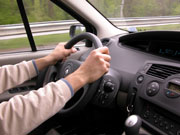
Full speed range adaptive cruise control (FSRA) technology improves the function of standard cruise control by adjusting the vehicle speed and distance to the vehicle ahead without any action on the part of the driver. If needed, the system will slow the vehicle down to a standstill. Once the road is clear, the system will re-accelerate the vehicle back to the set speed. The system applies to highway driving, both under free-flowing and congested traffic conditions.
ISO 22179:2009, Intelligent transport systems – Full speed range adaptive cruise control (FSRA) systems – Performance requirements and test procedures, will improve safety for all highway users by automatically adjusting vehicle speed and, in so doing, enhance driving comfort and convenience.
“Conventional cruise control is very useful, but can become a source of irritation when used in moderate or heavy traffic,” said Yoshimi Furukawa, Convenor of the ISO working group that developed the standard. “Traffic conditions can change quickly from slowing vehicles, or close cut-ins by other vehicles. The FSRA not only takes action when the distance to the vehicle in front changes, it also resumes the speed when the road is clear.”
The new standard covers the following aspects:
- Basic control strategy
- Minimum functionality requirements
- Basic driver interface elements
- Minimum requirements for diagnostics and reaction to failure
- Performance test procedures.
ISO 22179:2009, Intelligent transport systems – Full speed range adaptive cruise control (FSRA) systems – Performance requirements and test procedures, was developed by ISO technical committee ISO/TC 204, Intelligent transport systems, and is available from ISO national member institutes (see the complete list with contact details). It may also be obtained directly from the ISO Central Secretariat, price 118 Swiss francs, through the ISO Store or by contacting the Marketing, Communication & Information department (see right-hand column).
